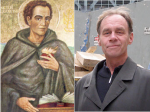Possibly the most significant theological advancement that my dissertation, neé book (The Church Is Flat: The Relational Ecclesiology of the Emerging Church Movement) accomplishes is in chapters four and five, in which I look at the ecclesiology of German theologian Jürgen Moltmann and put it into conversation with the ecclesial practices of the emerging church movement (ECM). Further, I believe mine is the first published work to deal with Moltmann’s most recent book, Sun of Righteousness, Arise!: God’s Future for Humanity and the Earth.
Moltmann’s ecclesiology, although spelled out at length in his third major book, The Church in the Power of the Spirit: A Contribution to Messianic Ecclesiology, is largely ignored by the theological academy. I have a theory about why that is: Because, unlike much of Moltmann’s theology, his ecclesiology is eminently practical.
But before getting to that, a quick primer on Moltmann’s overarching theological project is in order.
Both at the beginning and end of his career, Jürgen Moltmann has referred to his own theology a theologia viatorum: “a theology for us wayfarers.”[1] By that, he means that his theological agenda has been ever-shifting, the result of the various contemporary issues that he feels have confronted the church over his career. He has attempted to develop a theology that has a biblical foundation, an eschatological orientation, and a political impetus.[2] Elsewhere, he has written that his theological corpus has three main themes:
- a trinitarian thinking about God,
- an ecological thinking about the community of creation,
- an eschatological thinking about the various indwellings of God (in his people, in Christ, and in creation).[3]
Nos 1 and 3 are essential to understand Moltmann’s ecclesiology, which I will begin to unpack in the next post in this series.
[1] Jürgen Moltmann, Sun of Righteousness, Arise!: God’s Future for Humanity and the Earth (Minneapolis: Fortress Press, 2010), 181.
[2] Jürgen Moltmann, History and the Triune God: Contributions to Trinitarian Theology (New York: Crossroad, 1992), 182.
[3] Jürgen Moltmann, The Coming of God: Christian Eschatology (London: SCM, 1996), xii.












